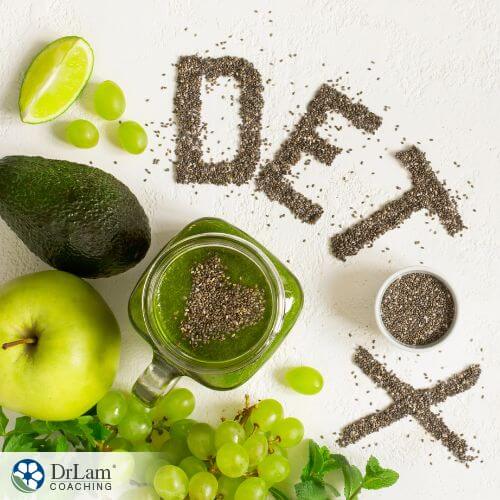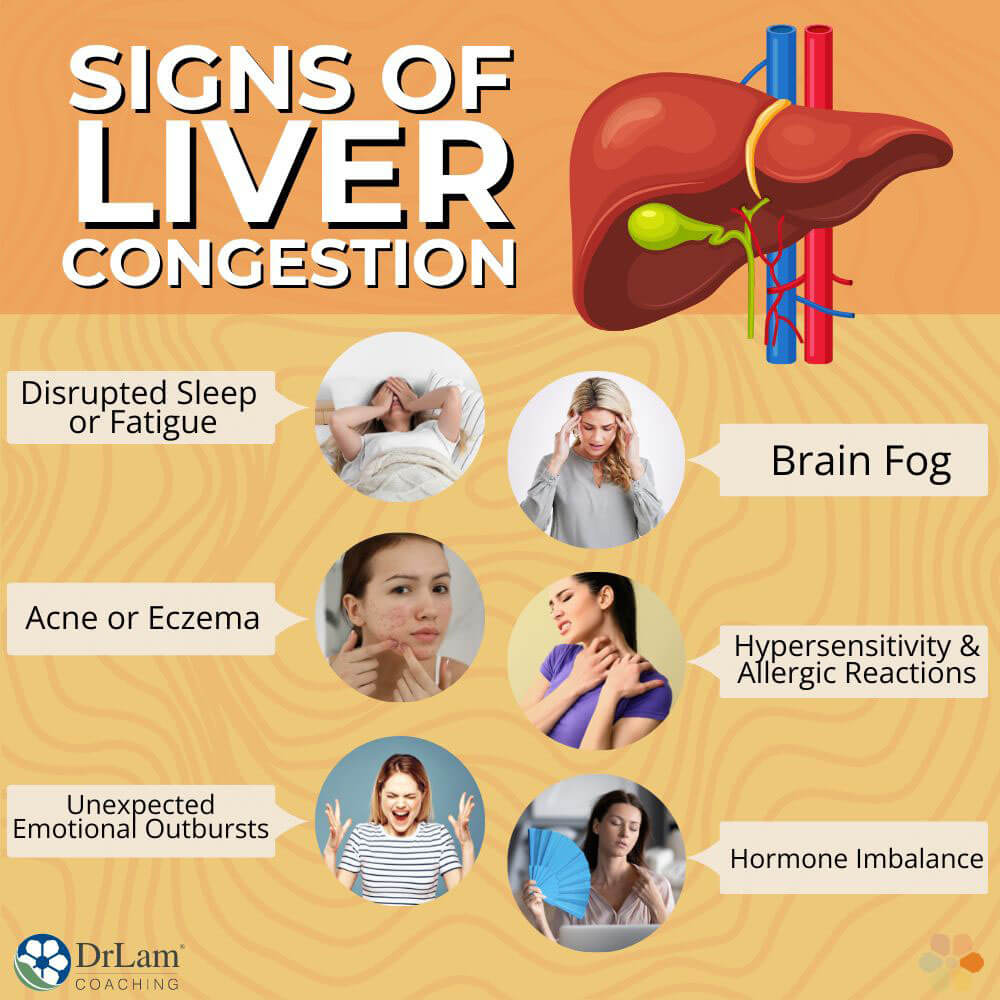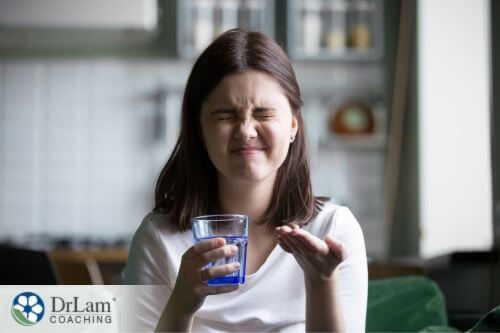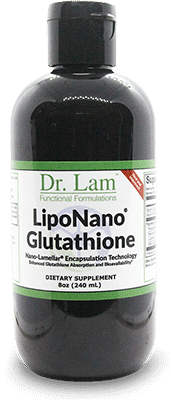 Over the last few years, the idea of doing a detox to flush toxins from the body has become increasingly popular. This is evidenced by the several different detox plans and diets that have emerged. However, many wonder if there is any justification for the detox hype or if it is just another buzzword with no real benefits. This article examines the signs and symptoms of detoxification problems and whether detoxification is helpful.
Over the last few years, the idea of doing a detox to flush toxins from the body has become increasingly popular. This is evidenced by the several different detox plans and diets that have emerged. However, many wonder if there is any justification for the detox hype or if it is just another buzzword with no real benefits. This article examines the signs and symptoms of detoxification problems and whether detoxification is helpful.
Detoxing, also known as detoxification, is simply the removal of toxins from the body. Toxins are compounds or substances that have harmful effects on the body. While the common culprits are heavy metals, cigarette smoke, and alcohol, even seemingly innocuous substances, like meat or nutritional supplements, can be toxic to the body.
In small amounts, these toxins do not cause any significant damage to the body. However, if they begin to accumulate, the body may experience several adverse effects. Fortunately, the body has a natural, in-built detoxification process that is constantly ridding the body of toxins.
The major organs concerned with detoxification are the skin, liver, intestines, and kidneys. These organs make up the detoxification circuit of the body, which is one of the circuits of the NeuroEndoMetabolic (NEM) Stress Response, the body’s anti-stress mechanism.
While the body’s internal detoxification system is normally efficient and effective, if there is an overload of this system, toxic metabolites may accumulate. High levels of toxic metabolites in the body are associated with several symptoms as well as adverse effects on normal metabolic processes.
Although the body naturally removes toxins, a detox program is often recommended when toxic metabolites accumulate in the body. There are various detox methods, including enemas, flushes, dietary changes, supplements, fasting, and juicing, amongst others.
The liver is typically the target of detox plans. It is the main organ concerned with the removal of toxins from the body, which it does through two detoxification phases – phase I and phase II.1 Both phases are complementary and necessary for proper detoxification in the body. If there is chronic exposure to toxins in the body, the liver may become congested, and damage may occur to the normal metabolic pathways for toxin removal.

Signs of liver congestion include:
Phase I converts toxins into a form that is more easily removed from the body by stage II, but if there are a lot of toxins and removal in stage II is slow, it can leave the body dealing with an overload of more hazardous and reactive toxins. This can cause a retox reaction.
During the process of detoxification, the body can become retoxified in a process known as a retoxification reaction. Also called retox, this reaction is connected to the body’s natural detoxification process and may even be regarded as a severe detoxification reaction.
 Retox reactions rarely occur in healthy individuals, but it is relatively common in people with chronic illnesses or conditions like Adrenal Fatigue Syndrome (AFS). Adrenal fatigue is the non-Addison's form of adrenal dysfunction, where the body's stress response cannot keep up with life's chronic stressors. Since dysfunction of the detoxification circuit of the NEM can result in adrenal fatigue, people with AFS often have problems with normal detoxification reactions.
Retox reactions rarely occur in healthy individuals, but it is relatively common in people with chronic illnesses or conditions like Adrenal Fatigue Syndrome (AFS). Adrenal fatigue is the non-Addison's form of adrenal dysfunction, where the body's stress response cannot keep up with life's chronic stressors. Since dysfunction of the detoxification circuit of the NEM can result in adrenal fatigue, people with AFS often have problems with normal detoxification reactions.
Symptoms of retoxification reactions include:
When you undergo a detox plan, there is increased support for the metabolic pathways in the body that removes toxins. The goal is that the detoxification phases in the liver necessary for toxin removal will perform better.
While there is anecdotal evidence of improved metabolic function during detox, however, there is currently no scientific evidence that supports the claim that detox plans improve metabolic processes and pathways.
Detox plans aim at augmenting the natural detoxification processes of the body, facilitating the removal of toxic metabolites. Below are some benefits associated with detox:
The detoxification organs, particularly the liver, are constantly eliminating toxins from the body. Whenever there is an overload of toxic metabolites in the body, these organs try to restore balance to the system. The compensatory increase in their activity can result in a few signs, some of which are:
In a healthy individual, there are no symptoms associated with the body’s natural detoxification process. However, as the body’s detoxification process approaches its maximum working capacity, symptoms begin to arise.
When the natural detoxification system is overwhelmed, the individual notices different signs. These signs imply that the body may need a detox. They include:
The length of time the body needs to detox varies, depending on the detoxification trigger. Common triggers for needing detoxification include the administration of certain medications, like antibiotics and diuretics, or a diet regimen that rapidly kills bacteria in the body. The death of bacteria can cause the release of toxins into the bloodstream. Also, even detoxification and weight loss programs can also trigger a detoxification reaction.
Usually, natural detoxification reactions last anywhere between a few hours to two days for mild triggers. For more intense cases, the reaction may last up to a week. Adding a detox program may reduce the time the body needs to detox, but may also increase it for chronically ill or adrenal fatigue patients.
As straightforward as detoxification may sound, it is crucial for it to be done properly to reap its rewards. Aside from maximizing its potential benefits, proper detox also limits the risk of retoxification. Here are a few things to note on a proper detox regimen.
 Use multiple pathways for detox. This ensures that no one pathway is overloaded by the detox, which is important in avoiding sensitivity and adverse reactions, especially if you are weak or ill. Also, multiple pathways improve the chances of the detox being effective.
Use multiple pathways for detox. This ensures that no one pathway is overloaded by the detox, which is important in avoiding sensitivity and adverse reactions, especially if you are weak or ill. Also, multiple pathways improve the chances of the detox being effective.There seems to be a supplement marketed for every condition or natural process today. Unsurprisingly, many supplements are useless for what they are marketed for. This begs the question then of if supplements work for detox, and the answer is yes. However, not all supplements marketed for detox can or should be used for it.
Below is a list of supplements that are beneficial for detoxification programs:
Glutathione is an antioxidant, meaning it helps to combat free radicals in the body. Being produced in the liver, glutathione is generally regarded as safe and can be useful in improving liver function, thereby improving detoxification. It is known as the master recycler, in that it will recycle vitamin C and help it work well again in the body. Liponano Glutathione is a liposomal delivery form that will ensure the highest absorption rate through passive diffusion in the small intestines.
For those who are very sensitive to detoxification, they might have to start low and go slow with drops of H2Nano, which is purified water clusters that have the ability to detoxify gently at low doses. If you're prone to paradoxical reactions, this might be a good option for you as you could empty one whole bottle into a gallon of distilled water and just take from that diluted form. Since the water is purified of minerals, it draws toxins to itself and helps detoxify the body.
This supplement contains activated charcoal, which has been historically used for managing toxicity due to its strong adsorption capabilities.3 When used transdermally, activated charcoal can help trap toxins and chemical impurities. Putting it over the liver area can help with detoxification. It's nice to be able to do detoxification topically rather than orally because you will be able to just pull the patch off if you have an adverse reaction to it.
There are a few risks to using supplements for detox, and the risk of paradoxical reaction is perhaps the most significant. A paradoxical reaction is simply a reaction that is opposite to the expectation. For instance, a supplement used for managing anxiety may trigger even more anxiety.
 The risk of paradoxical reactions increases with the weakness of the patient, and it is higher in those with detoxification problems. Therefore, people who are already ill and with AFS are at higher risk for this type of reaction, and they should take even extra precautions when using supplements. It's always best to talk to your doctor first before beginning any new supplement regimen, but especially a detox regimen.
The risk of paradoxical reactions increases with the weakness of the patient, and it is higher in those with detoxification problems. Therefore, people who are already ill and with AFS are at higher risk for this type of reaction, and they should take even extra precautions when using supplements. It's always best to talk to your doctor first before beginning any new supplement regimen, but especially a detox regimen.
Detox (or detoxification) is the removal of toxins from the body. Naturally, the body is well-equipped for detoxification, through the liver, skin, intestines, and kidneys. However, in the event that the natural detoxification processes become overloaded, a detox program may be required.
There are a few ways to do gentle detoxifications, but ensure that you speak to your healthcare professional before starting any detox programs. You should also seek medical advice before using any supplement, not least for the risk of paradoxical reactions occurring.
For more information about detox, the team at Dr. Lam Coaching can help. We offer a free, no-obligation phone consultation at +1 (626) 571-1234 where we will privately discuss your symptoms and various options. You can also send us a question through our Ask The Doctor system by clicking here.

Boost your vitality with LipoNano Glutathione's detox support!
Hodges RE, Minich DM. Modulation of Metabolic Detoxification Pathways Using Foods and Food-Derived Components: A Scientific Review with Clinical Application. J Nutr Metab. 2015;2015:760689. doi: 10.1155/2015/760689. Epub 2015 Jun 16. PMID: 26167297; PMCID: PMC4488002. https://pubmed.ncbi.nlm.nih.gov/26167297/
Buka I, Osornio-Vargas A, Clark B. Food additives, essential nutrients and neurodevelopmental behavioural disorders in children: A brief review. Paediatr Child Health. 2011 Aug;16(7):e54-6. doi: 10.1093/pch/16.7.e54. PMID: 22851902; PMCID: PMC3200397. https://pubmed.ncbi.nlm.nih.gov/22851902/
Zellner T, Prasa D, Färber E, Hoffmann-Walbeck P, Genser D, Eyer F. The Use of Activated Charcoal to Treat Intoxications. Dtsch Arztebl Int. 2019 May 3;116(18):311-317. doi: 10.3238/arztebl.2019.0311. PMID: 31219028; PMCID: PMC6620762. https://pubmed.ncbi.nlm.nih.gov/31219028/
Yes, some supplements are beneficial for the different detoxification processes in the body. However, it is essential to use only gentle supplements and talk to your doctor to prevent paradoxical reactions, which are the opposite of expected results, from occurring.